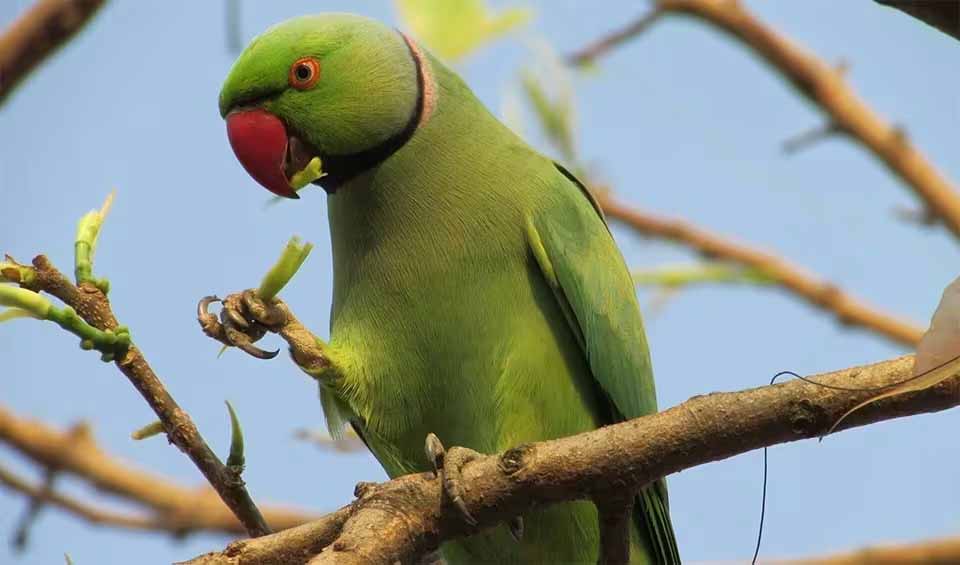Psittacula – Rose-ringed parakeets
All the species could easily be identified by unique colored heads and distinctive rings around their neck
Rose-ringed parakeets are widespread birds known for their distinctive calls, bright plumage, and adaptability to various environments. Originating from Africa and South Asia, these birds have established feral populations in many parts of the world, including Europe and the Middle East, due to their popularity in the pet trade and subsequent escape or release into the wild.
Rose-ringed parakeets typically exhibit a predominantly bright green plumage that allows them to blend seamlessly into the foliage. However, their loud calls often give away their presence before they are seen. Males are known for their namesake rose-colored rings around their necks, which females typically lack. The blue-winged parakeet, a related species, boasts a beautiful bluish-grey plumage that sets it apart from the more common green varieties.
While many species in the Psittacula genus are thriving, some have not been so fortunate. Newton’s parakeet, for instance, was a species that once graced the forests but sadly became extinct due to habitat loss and introduced diseases. Their demise serves as a stark reminder of the fragility of bird populations and the impact of human activity on wildlife.
These parakeets typically have a red or yellowish beak that contrasts with their plumage, short feathers, and notably long tails. The long-tailed parakeet, in particular, stands out with its impressive tail length, red cheeks, and black stripes that adorn its eyes and neck.
Rose-ringed parakeets are highly social and intelligent birds that thrive in both wild and urban settings. They are known for their ability to mimic human speech, which, combined with their social nature, makes them popular as pets. In the wild, they live in flocks and have a complex social structure involving communication, courtship, and communal roosting.
Species in this genus
Rose-ringed parakeet
If you ever forget the tune of a song, don’t worry; this bird has your back


